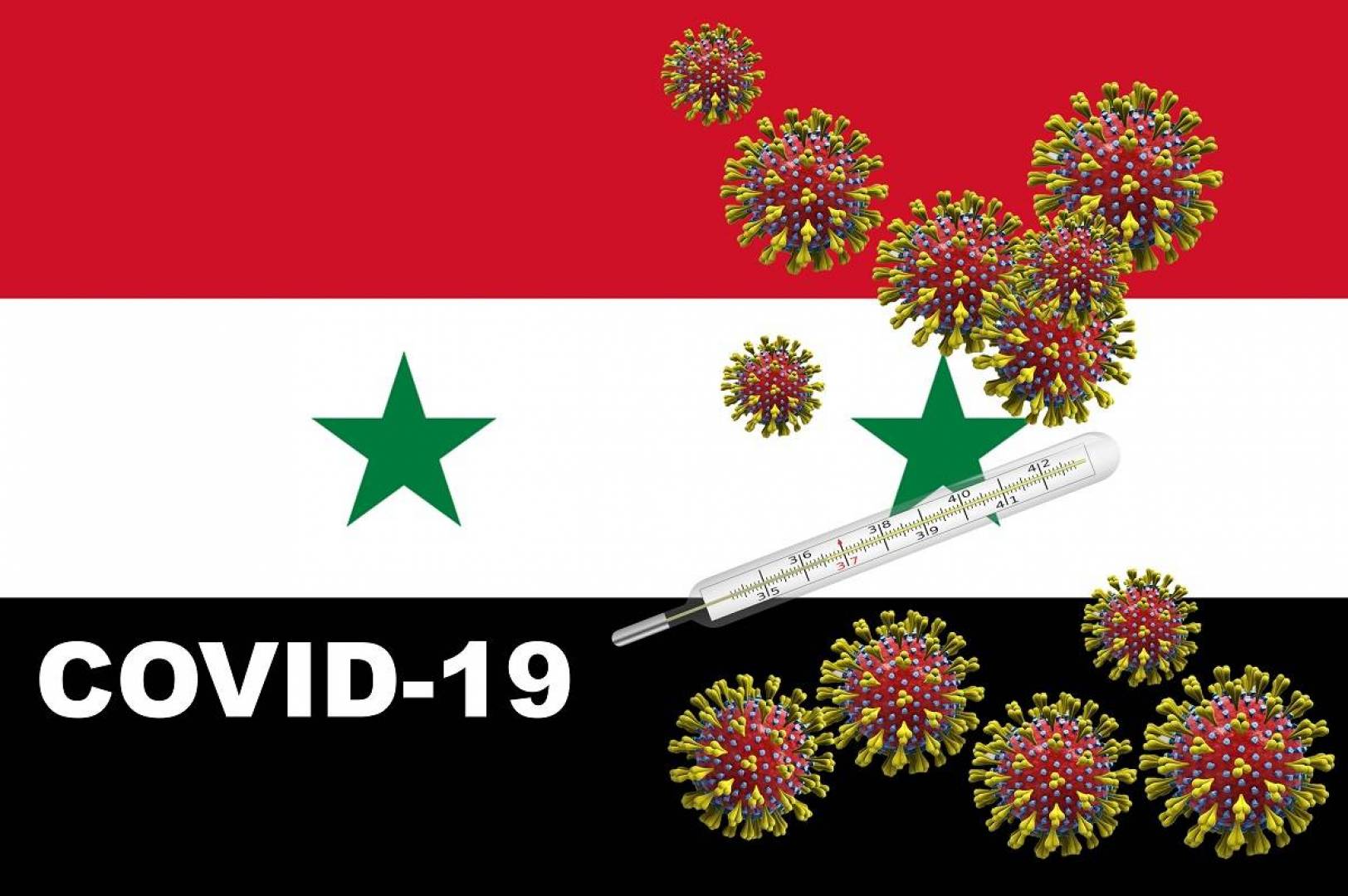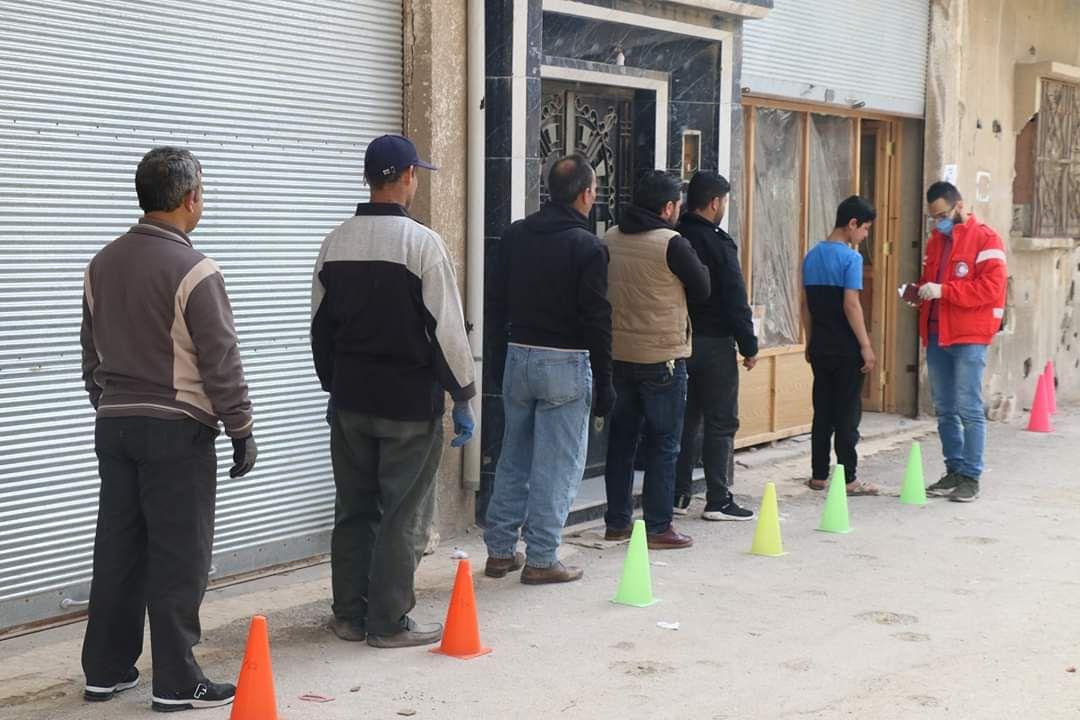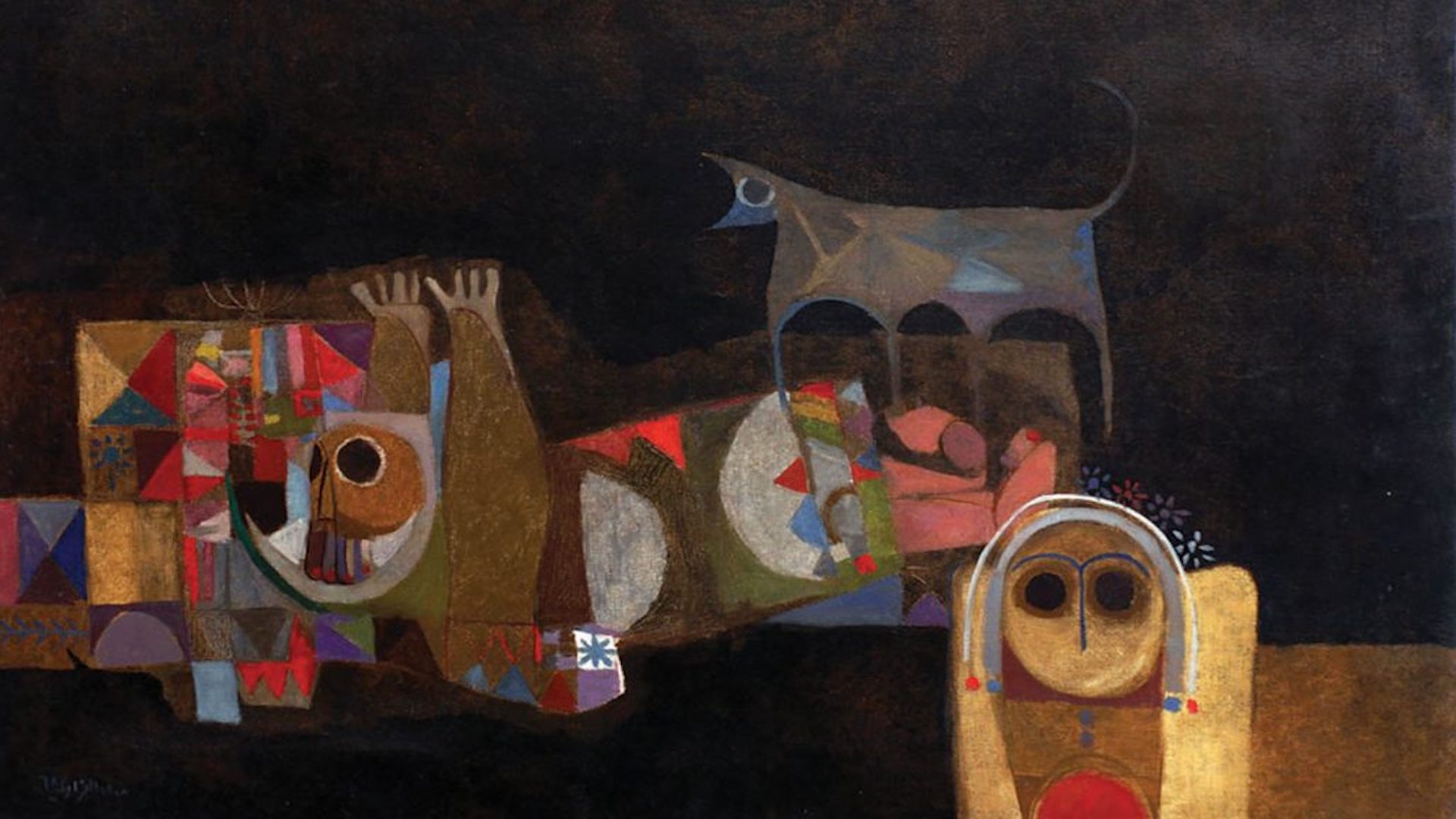This article, written in Qamishli, is the outcome of an ongoing collaboration between SyriaUntold and the Syrian Female Journalists Network.
“Since the dawn of the first day, I realized I was locked up in a mansion in the middle of the woods, surrounded by confusion on every side. He told me a fatal pandemic, perhaps the plague, had taken hold of the outside world…”
With that sentence began the mesmerizing novel The World’s Last Pomegranate, by Iraqi Kurdish writer Bachtyar Ali. I began reading it before life as we had always known it ended. Having never been through crises that forced me to stay home (on the contrary, the crises I had experienced, which changed the very maps of our existence, always necessitated that I leave the house), I grudgingly stayed inside, shielding myself from the plague like the hero in Ali’s novel.
Working from home was nothing new to me. Four years back, when it dawned on me that I preferred not to mingle with work colleagues, I gave most of my focus to jobs that allowed me to stay in my pajamas all day.
COVID-19 on the Syrian coast
28 March 2020
But remaining at home with parents who still went out to work made me feel like I was stuck in a small car, parked in the middle of a dark road with no real destination.
Queen of quarantine
The motivation I felt during the first few days of staying home perhaps used up my energy for the whole month. It might not seem logical on both psychological and health levels, but two weeks in, I was certain of that.
I started experimenting with cooking, and I tried countless dishes for the first time. I photographed the birds I could see from my balcony, and mixed all sorts of oils and grains to make masks for my skin. I stalked every single hair on my face and removed it as soon as it appeared. I turned the kitchen into an office where I worked double shifts—cooking by day, as soon as I woke up, and replacing the cutting board on the kitchen table with my laptop by night.
During the first days of lockdown, I was immensely productive, to the extent that I felt I was living my golden days. I had an ear-to-ear smile that I shone at my plants while watering them. Video calls multiplied with friends whom I had not spoken with in years.
I laughed at the toilet paper crisis in Europe and shared funny memes about the terrifying virus with my friends’ Whatsapp group. I finished the first season of my favorite series in one day, as though I was grasping at an opportunity for leisure that could not be delayed. I didn’t notice how fast the days went by. Suddenly they all became the same.
After these two weeks of peak activity, I discovered a new skill: sitting, undistracted, without my phone, and working for longer hours than I expected. I sailed away with my thoughts on long journeys without leaving the comfort of my chair. I sighed and pondered the past for hours, without considering what could happen the next day. I experienced the life of the old woman I should be one day in the distant future.
I watched the neighborhood from the balcony of my house. I think I live in one of the weirdest neighborhoods in the world. It is known for its dogs that bark all day, and a while ago, the two white donkeys that took to strolling around day and night, from street to street. They became the talk of the town. Our neighborhoods resemble us, just as we resemble our houses.
Fragments of memories
During the first few days of quarantine, I thought this was finally the chance I had been long waiting for to pick up my unfinished books. But piles of archived memories, which I had fallen short of rearranging due to time constraints, resurfaced. Because of the recent gaps in my memory, I decided to reconstruct it through my text messages and my scattered documents, only to realize that its fragile thread might be wiped out again with any first sneeze stemming from the virus.
As the days passed, I turned into a ticking time bomb. I reacted aggressively to all social media posts that did not align with my ideals, and I grew angry at the mockery accompanying posts that belittled women and housework. I doubted the intentions of men who boasted of taking up house chores thanks to the quarantine, as though it were some luxury for their wives and mothers before that.
I generously handed out red hearts in my comments on friends’ social media posts at times, and kept to myself with the poise of a cloistered nun at other times.
As I recall the last month of staying home, I grow more convinced that one month was enough to show the best and worst of me. That month was radical in imposing its whims on us. I teetered between a daily routine and a feeling of relief when accomplishing my tasks, and extreme exaggerated chaos. Speaking of exaggeration, I no longer felt the stigma of being a drama queen. On the contrary, I professed “pride in my drama.”
A friend of mine, who has always accused me of being melancholy, finally understood my moodiness. He told me the empty streets reminded him of people waiting for their deaths. I retorted sarcastically, “What’s new?” We have been experiencing all forms of death for years. We have long seen our cities sit desolate and expressionless. I thought to myself, “Wow! I am definitely stepping my sense of morose sarcasm up a notch!”
Creativity in shared isolation
It was a month filled with moments of truth and fragments of memory; a month during which I generously handed out red hearts in my comments on friends’ social media posts at times, and kept to myself with the poise of a cloistered nun at other times. Feelings are burdensome, and whoever wants to preserve their isolation must be innovative in sharing it.
Bachtyar Ali’s hero wandered the ocean after he had been lost alone in the desert for 21 years. I thought about the coincidence that this book and I had met one another during quarantine. It is a novel written with bewitching realism, in its margins a sense of pandemic. It is like the coronavirus pandemic, impacting our reality, residing within the margins of our daily lives.
I am a woman of eastern traditions; I carry any surprises within me, towards the unknown. I lose myself aimlessly in that uncertainty, at the mercy of its capricious plans. Wars and traps and pandemics and loss after loss. It is this capriciousness that foils my own plans, one by one.








